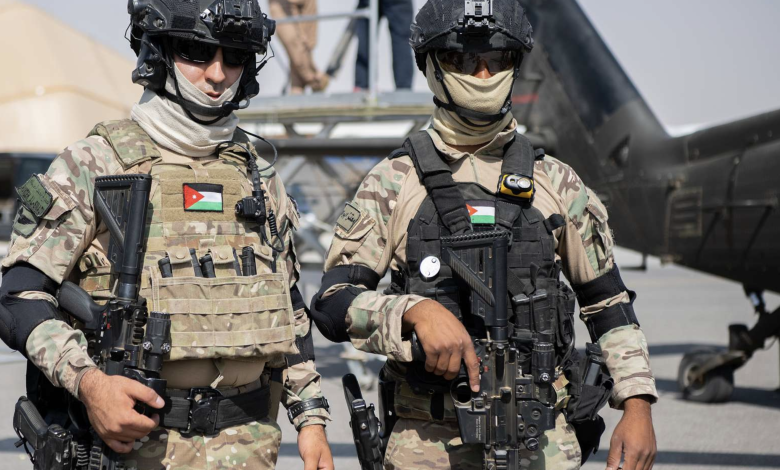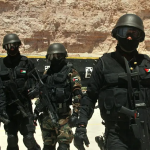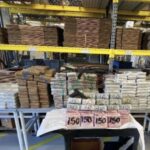Jordan Conducts Airstrikes on Suspected Iranian-Backed Drug Smugglers in Syria

In a significant move, Jordan conducted air strikes within Syria on Thursday, targeting suspected warehouses and hideouts believed to be operated by Iranian-backed drug smugglers, according to information from Jordanian and regional intelligence sources. This action comes as part of an intensified effort by the Jordanian military against drug dealers, following recent confrontations with infiltrators from Syria associated with pro-Iranian militias. These infiltrators were found to be carrying substantial amounts of weapons and explosives as they crossed the border into Jordan.
According to Reuters, the air strikes were directed at a suspected residence of a prominent drug dealer in the town of Shaab in Sweida province, as well as warehouses near the village of Al-Ghariya, both situated in the Sweida province near the Jordanian border. Ryan Marouf, the editor of Suwayda 24, a Syrian news website specializing in tracking the drug war, reported seeing a plume of smoke rising from the border area shortly after the strikes.
Marouf explained that the first strike targeted a leading drug dealer with connections to Iranian militias, while the second raid hit a farm believed to be storing drugs. Jordanian officials, in alignment with Western allies, have consistently accused Iran-backed groups such as Hezbollah and other pro-Iranian militias controlling southern Syria of being responsible for an increase in drug and weapons smuggling. In contrast, Iran and Hezbollah dismiss these allegations as part of Western plots against their countries, and Syria denies complicity with Iranian-backed militias linked to its army and security forces.
Jordan, in its efforts to enhance border security, has received assurances of increased U.S. military aid. Approximately $1 billion has been allocated by the United States to establish border posts in Jordan since the onset of the Syrian conflict in 2011. International experts, including U.N. officials and representatives from the U.S. and Europe, assert that the illicit drug trade in Syria funds the proliferation of pro-Iranian militias and paramilitary forces associated with the Syrian government, both of which have emerged over more than a decade of conflict.
The ongoing war in Syria has turned the country into the central hub for a multi-billion-dollar drug trade, with Jordan serving as a critical transit route to the oil-rich Gulf states for a Syrian-produced amphetamine known as captagon, as highlighted by Western anti-narcotics officials and statements from Washington. The situation underscores the complex nexus between regional security concerns, the Syrian conflict, and the illicit trade in drugs and weapons, with nations taking decisive measures to counter these threats.





